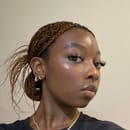Beauty is a currency that both can open and close many doors in society. It’s the forefront of many habits we have, the things we care about and keeps the cycle of consumerism up and running. Most of the time, our indulgence in beauty is subconscious, but many times it’s also intentional. Whilst viewing beauty as a currency may be problematic as it arguably promotes (self)objectification and sexism, for the simple sake of this article we’re going to accept it as such.
Beauty is primarily seen as a form of “currency”, more so for women than men, because it subjects women to the pressure and overemphasis on looks, along with demanding the effort expelled to be “beautiful”; this extensive focus does not affect men in the same way. For women, beauty can be analogous to their social status and the level of respect, grace, and kindness they are given by others- as best highlighted in the term ‘pretty privilege’.
It’s fair to say that the gap between individuals detached from nepotism and similar advantages, and their chances of securing a space within the beauty industry has been reduced due to the wide accessibility of social media. This has created the prevalence of influencer culture, which illustrates the impacts of pretty privilege. However, the mass commercialisation of beauty and the overexposure to it, especially considering the speed at which trends rise and fall these days due to social media apps, such as TikTok and Instagram, reinforces idealism.
In the past few weeks, a TikTok circulated with the creator stating that they spend £1.5k a month on their monthly beauty maintenance; uproar for the video came due to the language used, wherein those who don’t spend as much were called “tramps” and “ogres”. Although many women may have a monthly maintenance budget, most will say it’s because they either enjoy getting those things done or they like the way they look or feel after doing so. However, this TikTok creates a false narrative that one must do these things to be beautiful at all, rather than only doing those things to enhance their natural beauty.
Feeling like one must adhere to this not only creates unnecessary pressure for one to focus, care, or perhaps overly fixate on their looks, but it also reinforces that the concept of black beauty and its expression ought to be viewed in a monolithic manner. This is because the video suggests that to be deemed as pretty or desirable by those standards, a budget must be set on particular things- lash extensions, nails and “buss down” wigs- to achieve a certain look. This is problematic given that following the Western standards on beauty ideals, black women are already disregarded as being beautiful – with those with a lighter complexion, slimmer physique or a hair type that deviates from a type-4 curl pattern being given more grace than others. Thus, adding further requirements is not conducive and arguably discourages individuality.
This also ties into the recent conversation on social media concerning the ‘UK black girl aesthetic’. The focal point of this conversation is not that everyone looks the same, however, people are trying to say that there is one particular look within the ‘aesthetic’ that has somewhat become the standard, thus causing others to potentially feel excluded if they don’t conform to it. However, this is not a new phenomenon and can easily be identified through societal ideals regarding the female body type. While pop culture has highly glamourised a curvier phenotype in the past few years, which is most naturally seen in black women, eurocentrism means that the slim physique has been, and will continue to remain the norm and glorified.
With the way trends and fast fashion work, it is natural for people to have access to similar items and dress similarly. If someone’s personal liking for something falls into a particular ‘aesthetic’, they should feel free to indulge in it without judgement or being deemed as trampy. It is true that this conversation makes room for individuals to project their insecurities onto others, but at the end of the day people will buy, can buy, and should buy what they like, and it is important that they should be able to do so freely irregardless of whether their vibe fits into a certain ‘look’ or not.
Everyone should feel empowered to express themselves and display their beauty in a way that best suits them and that makes them feel the most gorgeous.
Written by: Michele Ngue-Awane
Edited by: Harsheni Maniarasan


